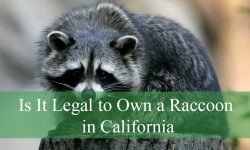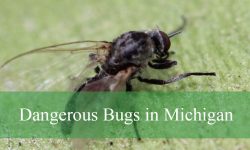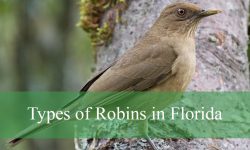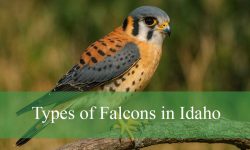Raccoons are curious, intelligent, and undeniably adorable. Their mischievous eyes and clever hands often make people wonder what it would be like to keep one as a pet. In Florida, where exotic pet ownership laws can be complex, many animal enthusiasts ask: Is it legal to own a raccoon in Florida? The answer is more complicated than a simple yes or no.
Understanding Florida’s wildlife laws, raccoon behavior, and the responsibilities that come with keeping such an animal is essential before anyone considers taking a raccoon home.
This guide will explore everything you need to know about raccoon ownership in Florida, including permits, legal restrictions, health risks, and ethical concerns.
Understanding Raccoons and Why People Want Them as Pets
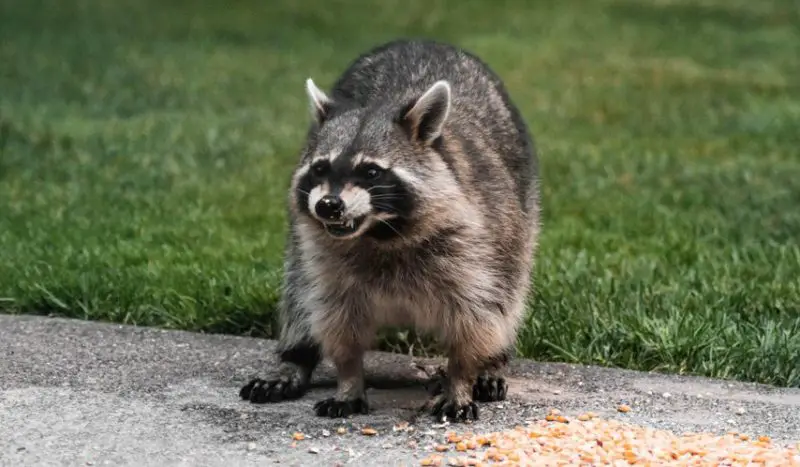
Raccoons (Procyon lotor) are medium-sized mammals native to North America. Known for their dexterous paws and distinctive black “mask,” these nocturnal creatures are highly intelligent. Studies have shown raccoons can remember solutions to tasks for over three years, a trait that rivals some primates in problem-solving skills.
Many people find raccoons charming because of their expressive faces and playful behavior. Videos of baby raccoons eating grapes or washing their food have contributed to their popularity on social media, making them seem like potential companions. However, wild instincts never fade easily, even in captive-born raccoons.
In Florida, the desire to own a raccoon collides with strict wildlife conservation laws designed to protect both humans and native ecosystems. To understand if you can legally own one, you must first grasp how the state classifies raccoons.
How Florida Classifies Raccoons Under State Law
Florida’s Fish and Wildlife Conservation Commission (FWC) regulates ownership, possession, and handling of wild and exotic animals. The state groups animals into three categories based on their potential danger to humans and the environment:
- Class I animals – considered dangerous and cannot be kept as pets (examples: lions, bears, crocodiles).
- Class II animals – require a special license and experience to own (examples: bobcats, servals).
- Class III animals – include species that pose less risk and can be owned with a specific permit.
Raccoons fall under Class III wildlife. This means they are not banned outright, but owning one requires a Class III Personal Use Permit issued by the FWC. However, this permit does not come easily. You must meet certain housing, care, and record-keeping requirements before you can legally keep a raccoon in Florida.
The Legal Answer: Can You Own a Raccoon in Florida?
Technically, yes — it is legal to own a raccoon in Florida, but only if you have the correct Class III permit from the Florida Fish and Wildlife Conservation Commission. Without it, keeping, capturing, or breeding a raccoon is illegal and may result in severe penalties.
What the Permit Allows
The Class III permit allows a person to keep a raccoon for personal use, meaning as a pet or for educational purposes. However, it does not allow breeding, selling, or exhibiting raccoons to the public.
Permit Requirements
To obtain this permit, you must:
- Be at least 16 years old.
- Demonstrate the ability to properly care for the animal.
- Provide secure, species-appropriate caging that meets FWC standards.
- Agree to unannounced inspections by wildlife officers.
- Keep detailed records of acquisition and care.
Even after approval, your permit must be renewed periodically, and failure to meet standards can result in revocation.
Why Florida Regulates Raccoon Ownership Strictly
Florida’s wildlife laws exist for several reasons: public safety, animal welfare, and ecological protection. While raccoons may seem harmless, their behavior and biology make them unsuitable for casual pet ownership.
Raccoons are wild by nature, not domesticated. Even if hand-raised, they often retain aggressive instincts, particularly during mating season. A mature raccoon can inflict deep scratches and bites when threatened or frustrated.
Another major concern is disease transmission. Raccoons are known carriers of rabies, leptospirosis, roundworms (Baylisascaris procyonis), and other zoonotic diseases that can affect humans and pets. The state’s strict regulation helps limit these risks while preventing illegal trade and environmental disruption.
Applying for a Class III Raccoon Permit in Florida
If you are serious about keeping a raccoon as a pet, the process begins with applying for a Class III Personal Use Permit through the FWC. Here’s what the application generally involves.
Step 1: Complete the Application
Applicants must fill out FWC Form 1000A, available on the official FWC website. The form asks for personal information, the species you intend to keep, and details about your facilities.
Step 2: Describe Your Enclosure
Your application must include a detailed description and photos of the enclosure. It must meet the FWC’s minimum caging standards for raccoons:
- Enclosures should provide at least 6 feet of height and plenty of climbing opportunities.
- Flooring must prevent escape but remain comfortable for the animal.
- Shade, shelter, and clean water must be accessible at all times.
Step 3: Demonstrate Experience or Knowledge
While no formal training is required, applicants should prove basic knowledge about raccoon care, feeding, and behavior. This can be shown through prior animal-handling experience or self-study.
Step 4: Inspection
Before approval, a wildlife officer may visit your property to ensure the enclosure meets requirements and safety standards.
Step 5: Annual Renewal
Your permit must be renewed annually. Failure to comply with updates or to allow inspection can result in fines or permit loss.
Penalties for Owning a Raccoon Without a Permit
Owning a raccoon in Florida without proper authorization is a violation of Florida Administrative Code 68A-6 and Florida Statutes 379.3762.
If caught, offenders may face:
- Confiscation of the animal.
- Fines up to $500 for each violation.
- Possible misdemeanor charges leading to criminal records.
- Prohibition from owning wildlife in the future.
In some cases, illegally kept raccoons must be euthanized because they cannot be safely released back into the wild, which is tragic and preventable.
Ethical and Practical Issues with Keeping Raccoons as Pets
Even if you can legally own a raccoon in Florida, that doesn’t necessarily mean you should. Raccoons have unique needs that make them challenging domestic companions.
Raccoon Temperament
Raccoons are curious and energetic, constantly exploring their surroundings. They love to climb, dig, and manipulate objects with their dexterous paws. In a household, this behavior often translates into destructive tendencies—ripping furniture, opening cabinets, or turning over trash bins.
Emotional and Behavioral Changes
While young raccoons may be affectionate, they often become unpredictable after reaching sexual maturity around 6–9 months old. Even neutered raccoons may display aggression, especially if confined or overstimulated.
Longevity and Welfare
Raccoons in captivity can live up to 15 years, much longer than in the wild. This means long-term commitment. Many owners underestimate the effort, leading to abandonment or surrender to wildlife rescues—an outcome that stresses the animal and burdens rehabilitation centers.
What to Feed a Pet Raccoon in Florida
If you obtain a raccoon legally, providing proper nutrition is crucial. Wild raccoons are omnivores, eating a mix of fruits, nuts, insects, eggs, and small animals.
A balanced captive diet may include:
- High-quality dog food as a protein base.
- Fresh fruits and vegetables (apples, grapes, corn, melon).
- Occasional cooked eggs or fish.
- Limited treats like peanuts or mealworms.
Avoid feeding processed human foods or sugary snacks, which can cause obesity and diabetes. Always provide clean water and environmental enrichment to mimic natural behaviors.
Housing Requirements for Pet Raccoons
Florida law emphasizes secure containment for raccoons to prevent escape or harm. A raccoon enclosure should:
- Be built from strong wire mesh or reinforced panels.
- Have a double-door entry system to prevent accidental escape.
- Offer climbing structures, hollow logs, and small pools.
- Provide a shaded area and den box for resting.
Outdoor enclosures are preferred, as raccoons require space to roam and explore. Indoor housing can cause stress and behavioral problems if used exclusively.
Common Diseases Carried by Raccoons
Keeping a raccoon also means accepting the potential health risks. Even vaccinated raccoons may transmit diseases through bites, scratches, or feces.
Rabies
Raccoons are one of the top carriers of rabies in the United States. Vaccination reduces but does not eliminate the risk. A single bite could lead to quarantine or euthanasia of the animal.
Baylisascaris Procyonis (Raccoon Roundworm)
This intestinal parasite can infect humans and cause severe neurological damage. It is transmitted through raccoon feces, making strict sanitation essential.
Leptospirosis and Giardiasis
These bacterial infections spread through contaminated water or soil and can infect humans, dogs, and other pets.
Because of these risks, raccoon owners in Florida must take sanitation, vaccination, and veterinary care seriously.
Alternatives to Keeping a Raccoon as a Pet
If you are drawn to raccoons but don’t want the legal or ethical burden, there are safer ways to appreciate them.
Wildlife Volunteering
Join a licensed wildlife rehabilitation center in Florida. You can help rescue, rehabilitate, and release injured raccoons legally under supervision.
Wildlife Observation
Install outdoor cameras or raccoon-proof feeders to enjoy watching raccoons in their natural environment without interference.
Domestic Alternatives
Some people find raccoon-like behavior in pets such as ferrets or sugar gliders, which are legal and easier to manage in Florida.
Why Releasing a Pet Raccoon Back into the Wild Is Illegal
If a raccoon becomes unmanageable, releasing it into the wild might seem kind—but it’s illegal in Florida. Once accustomed to humans, released raccoons struggle to survive, spread disease, or disrupt local wildlife populations.
Instead, contact a licensed wildlife rehabilitator or the FWC for assistance. They can evaluate the animal’s condition and relocate it properly.
Comparison: Raccoon Ownership Laws in Other States
Raccoon ownership laws vary widely across the U.S.:
- California: Completely illegal to own or rehabilitate raccoons without state authorization.
- Texas: Legal with a permit for non-native species but heavily regulated.
- Ohio: Permits allowed for certain exotic animals but not wild-caught raccoons.
- Georgia: Strictly prohibited; offenders face criminal penalties.
- Wisconsin: Ownership allowed under specific wildlife farm licenses.
This variation shows that Florida is one of the few states that still allows private raccoon ownership—albeit under tight conditions.
The Future of Raccoon Ownership Laws in Florida
As public awareness grows about wildlife welfare and zoonotic diseases, Florida’s regulations may become even stricter. The FWC periodically reviews its wildlife classification system, and species like raccoons could be subject to further restrictions or bans in the future.
Animal welfare organizations continue to lobby against private raccoon ownership, citing frequent abandonment cases and potential ecological risks. Thus, even legal owners should remain informed about evolving laws and best care practices.
Responsible Wildlife Ownership in Florida
If you choose to keep a raccoon under legal conditions, responsibility extends beyond permits. You must provide enrichment, proper diet, veterinary care, and socialization. Most raccoons are happiest in natural settings, not confined indoors.
Responsible ownership means respecting wildlife while minimizing harm—to both animals and people. The goal should always be coexistence, not domestication.
FAQs About Owning a Raccoon in Florida
Do I need a permit to rescue an injured raccoon?
Yes. Even temporary possession of a wild raccoon requires authorization or partnership with a licensed wildlife rehabilitator.
Can I buy a raccoon from a breeder?
Only if the breeder is licensed by the FWC and provides legal documentation of captive breeding. Wild-caught raccoons cannot be sold or kept as pets.
What happens if I find a baby raccoon?
Do not try to raise it yourself. Contact a wildlife rehabilitation center or FWC hotline immediately.
Are raccoons dangerous to dogs or cats?
Yes, they can carry diseases transmissible to pets and may fight when threatened.
Can a raccoon be vaccinated like a dog?
Some vets can administer rabies and distemper vaccines, but not all clinics handle wildlife species.
Final Thoughts
So, is it legal to own a raccoon in Florida? Technically, yes—but only if you have a valid Class III Personal Use Permit issued by the Florida Fish and Wildlife Conservation Commission. Without it, ownership is illegal and punishable by fines or criminal charges.
While raccoons may seem endearing, they remain wild animals with complex needs. Their unpredictable behavior, potential for disease transmission, and long-term care requirements make them a challenging choice for pet owners.
For most people, appreciating raccoons from a distance—or through licensed wildlife programs—is a far more rewarding and ethical option. Legal ownership may be possible, but true respect for nature means knowing when not to interfere.

